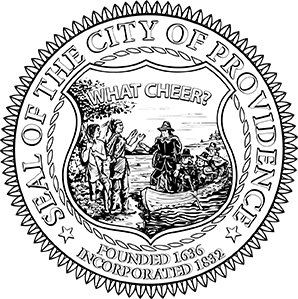‘Lots of Hope’ program awarded $100,000 by Rhode Island Foundation and Florida-based Local Sustainability Matching Fund
The City of Providence, in partnership with the Southside Community Land Trust and the Rhode Island Foundation, is embarking on a new initiative to convert city-owned vacant lots into productive urban farms.
“Lots of Hope is an innovative new program that will help to build a more sustainable and healthy City for years to come,” said Mayor Angel Taveras. “Providence has a vital environmental community committed to helping make the city more sustainable. Together, we are moving forward to transform Providence into one of the greenest cities in the nation. I thank the Rhode Island Foundation, the Local Sustainability Matching Fund and Southside Community Land Trust for partnering with the City of Providence on this exciting initiative.”
The Lots of Hope program will enable Providence residents to access low-cost, underutilized public land from the City along with technical assistance and hands-on support from Southside Community Land Trust. The program is financed by a $50,000 grant from the Florida-based Local Sustainability Matching Fund and a matching $50,000 grant from the Rhode Island Foundation.
The City is currently working with the Southside Community Land Trust to identify land parcels fit for use as urban gardens. With the approval of the City Council, the City will enter into long-term, low-cost leases with the Southside Community Land Trust, which in turn will sublease the plots to residents and community organizations for farming.
“Fresh, affordable and locally grown food is good for Providence families, our communities and our economy,” said Margaret DeVos, executive director of Southside Community Land Trust. “Lots of Hope demonstrates Southside Community Land Trust’s 30-year commitment to healthy lifestyles, high quality of life and environmental sustainability in neighborhoods across the City. We are grateful for Mayor Taveras’ leadership in convening this partnership.”
Lots of Hope is designed to improve access to locally grown fresh produce in neighborhoods at risk of becoming “food deserts” due to insufficient access to conventional grocery stores. The program will expand Providence’s portfolio of green, open space and contribute to improvements in air quality, public health and local property values.
In addition, Lots of Hope will introduce a residential composting program, enabling families in low-income, environmentally at-risk neighborhoods to reduce solid waste and create a local source of high-quality compost that supports urban food production.
“We are tremendously excited about this project,” said Jennifer Pereira, a grant program officer with the Rhode Island Foundation. “It is a win-win-win for Providence – increasing the City’s green space and local food production; improving neighborhoods; and fostering innovative new ventures for our communities. The Foundation is pleased to strengthen our partnership with the City of Providence’s Office of Sustainability and we look forward to working together on this wonderful effort.”
Providence is one of six cities across the nation to receive a grant from the Local Sustainability Matching Fund this year. The Fund is a collaborative effort of the Funders’ Network for Smart Growth and Livable Communities, the Urban Sustainability Directors Network, Kendeda Fund, New York Community Trust, Summit Foundation, and Surdna Foundation, and is designed to catalyze partnerships between local governments and local, place-based foundations and to advance community-based sustainability initiatives.
“The Local Sustainability Matching Fund is catalyzing efforts of local communities to green their cities and counties,” said Diane Ives, a fund advisor for the Kendeda Fund. “The Kendeda Fund believes that the local passion and dedication demonstrated in these projects will create new models for how to live sustainably. We are eager to see the impact of this work at the local level, and how it gets replicated in other urban settings around the country.”
Information about how interested residents can get involved with Lots of Hope will be announced this spring.

